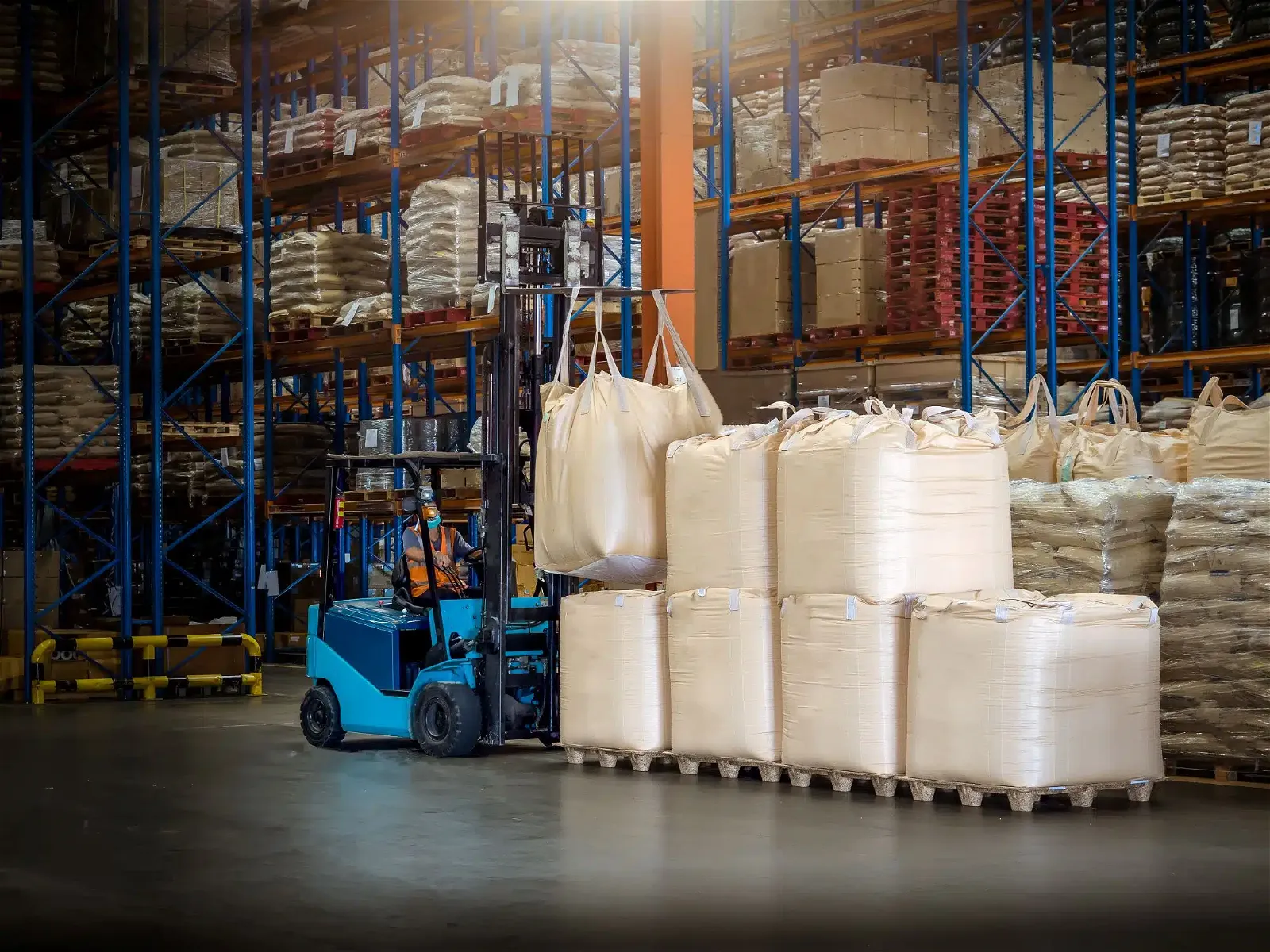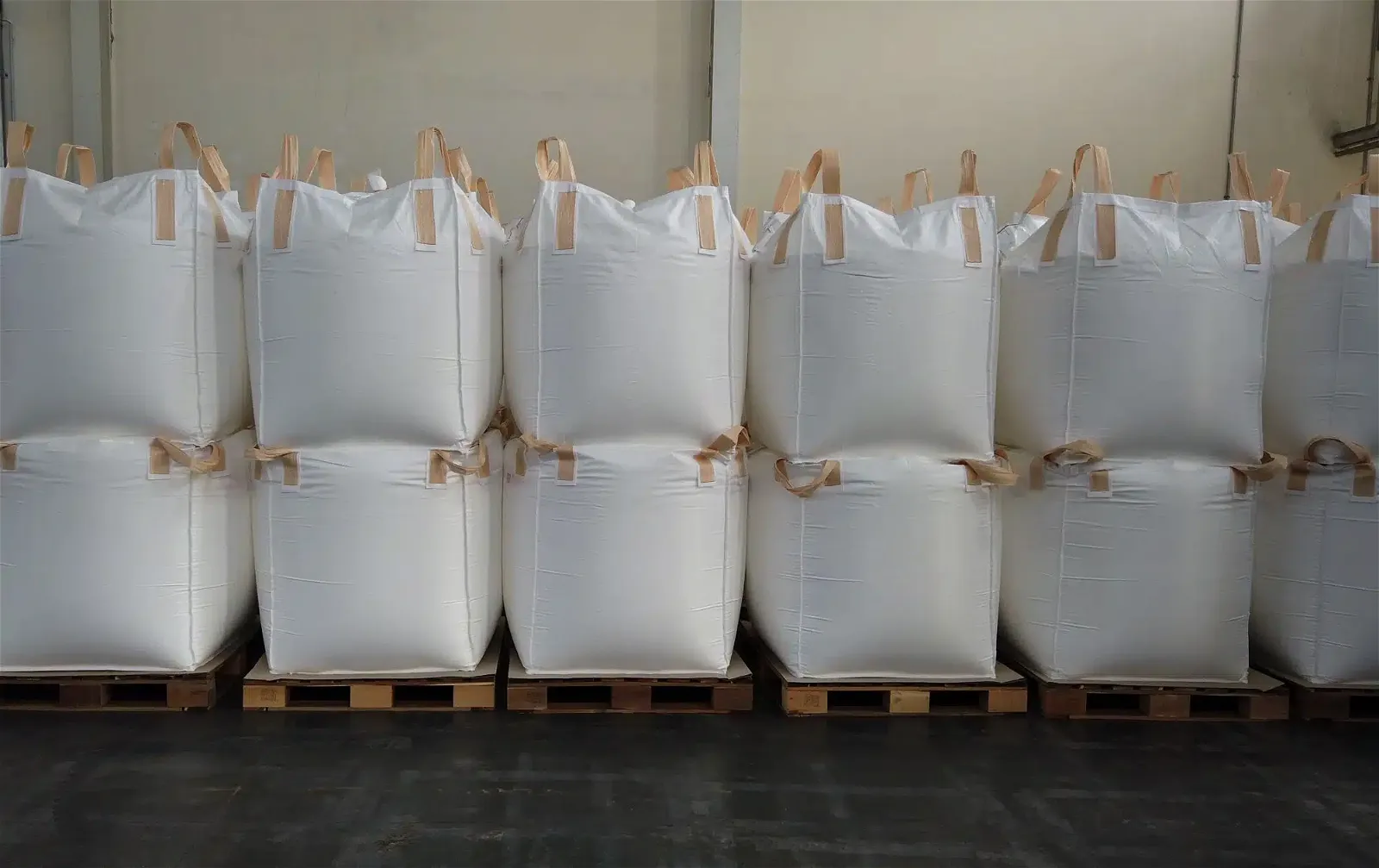One effective way to grow your business is to invest in bulk bags.
They provide a reliable and efficient means of storing, transporting, and handling various types of goods and materials.
Bulk bags can streamline business operations, protect products, optimize storage space, and ensure safe and secure handling throughout your supply chain.

Finding The Right Bulk Bags For Your Business Needs
With numerous bulk bag options available in the market, it can be overwhelming to make the best decision.
But an excellent option is flexible intermediate bulk containers (FIBCs).
They’re large, flexible bags made from woven polypropylene fabric.
They’re designed to store and transport bulk quantities of various materials, including powders, granules, chemicals, and agricultural products.
This article aims to equip you with essential tips to guide your search.
Whether you’re in manufacturing, construction, or any other industry, these strategies will help you make an informed choice.
So, dive in and discover how to get FIBC bulk bags or any other type that meets your specific requirements.
- Consider Your Product’s Characteristics
Unveiling the unique characteristics of your product marks the starting point in your quest for the right bulk bags.
Look at aspects such as density, moisture content, and even the product’s chemical makeup.
All these factors play a decisive role in the selection process.
For instance, dealing with fine powders calls for a tightly woven bag, maybe with an additional liner to avert any leakage and uphold the product’s integrity.
But you’ll most likely need bags lined with a moisture barrier to protect your product.
With a deep understanding of your product’s singular traits, you have a roadmap to guide your choice.
- Evaluate Load Capacity Requirements
Ensure you understand the weight of your product and its bulk density.
These factors guide you to the bag capacity you need, ensuring you neither overload your bags nor let their space go to waste.
Suppose you’re handling a product like wheat with a bulk density of approximately 500 kg/m3.
In such a case, choose bags that can comfortably accommodate this weight.
Overloading can lead to hazards like structural failures while underutilizing bags can attract unnecessary costs.
It’s also critical to factor in static and dynamic loads.
Static load relates to the bag’s weight when stationary, while dynamic load refers to when the bag is in transit or being handled.
Evaluating these parameters enables you to select bulk bags perfectly designed to handle your product’s weight, promoting safety and efficiency in your operations.
- Assess Safety And Compliance Standards
Safety and compliance standards assure quality, durability, and, most importantly, safety.
Ensure the bags you opt for have been tested and bear certification marks for safety aspects such as the safe working load (SWL) and safety factor ratio.
For example, if you run a quarry business dealing with heavy stones, you’ll need bags with a high SWL and a solid safety factor ratio.
These specifications confirm the bag can safely carry the weight of your stones without posing a risk to your team or the product itself.
Finally, don’t overlook compliance with global standards.
Look for adherence to guidelines from authorities like the International Organization for Standardization (ISO) and the Flexible Intermediate Bulk Container Association (FIBCA).
By keeping safety and compliance front and center, you mitigate risks, ensuring the integrity of your product.

- Determine Bag Design And Construction
Consider factors like the type of seams, the style of lifting loops, and the available discharge options.
For instance, if you’re in a business dealing with heavy loads, like metal scraps, bags with cross-corner loops could be the ideal solution.
Their design grants stability during lifting, which is a huge plus for efficiency.
Furthermore, the fabric’s strength and thickness, the quality of stitching, and reinforcements shouldn’t escape your scrutiny.
Consider a landscaping company dealing with rough, abrasive materials like gravel.
In this case, bags with reinforced corners and extra layers in high-stress areas can prove more resilient and long-lasting.
By casting a keen eye on the bag’s design and construction, you’re setting yourself up to pick a reliable, sturdy solution that can withstand the test of time and the rigors of your operation.
- Evaluate Handling And Storage Conditions
Understanding your unique handling and storage conditions is another secret sauce in choosing the right bulk bags.
Look at factors like temperature and exposure to sunlight. These will influence your choice significantly.
Suppose you’re in the agricultural sector, storing fertilizers outdoors or in humid environments.
You’ll need bags with a UV protection feature.
This ensures your bags, and by extension, your products, aren’t compromised by excessive sunlight.
Equally essential is the consideration of handling and transportation ease.
If you’re operating a warehouse using forklifts for lifting and moving goods, bags with compatible lifting loops will be your best choice.
These can significantly streamline operations and lower the risk of accidents.
- Consider Reusability And Disposal Options
Opting for bags that can be reused multiple times helps reduce waste and cut costs.
Look for durable materials that maintain their integrity even after repeated use.
Additionally, prioritize recyclable bags that can be transformed into new products, promoting a circular economy.
For example, in the pharmaceutical industry, FIBCs can be used to transport and store raw materials such as active pharmaceutical ingredients (APIs) or excipients in the agricultural industry, saving money and reducing waste.
Repurposing bags in other industries, such as using construction bags for flood barriers, extends their lifespan and helps maximize their value.
Takeaway
Making the right choice of bulk bags for your business is no small task—it requires meticulous attention.
This process requires thoroughly reviewing your product’s properties, load capacity, and the bags’ safety and design features.
Simultaneously, unique handling and storage conditions are crucial in shaping your decision.
Such careful selection has numerous benefits, from streamlined operations to safeguarded products and optimized storage.
Safe handling throughout the supply chain becomes more assured.
Furthermore, embracing reusable bags and adopting recycling strategies not only enhance your operation’s sustainability but also helps in waste reduction.
With careful evaluation of your needs, you’re ready to invest in the ideal bulk bags for your business.
